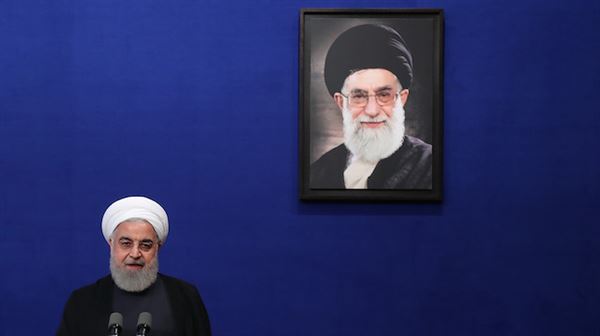Since the fall of Saddam Hussein regime after the U.S. invasion in 2003, Iran's influence in Iraq has grown exponentially. Yet, current popular protes
Since the fall of Saddam Hussein regime after the U.S. invasion in 2003, Iran’s influence in Iraq has grown exponentially. Yet, current popular protests in the Arab country have unfolded a desire for salvation and change.
As Iraqi protesters took to the streets demanding better living conditions, a sentiment against Iran’s role has been clearly manifested in an attack on the Iranian Consulate in the Shia holy city of Karbala.
Demonstrators consider Iran’s influence in the post-Saddam era as one of the major contributors to their current poor living circumstances.
On Sunday, angry demonstrators attacked the consulate in the southern city, bringing down the Iranian flag and replacing it with Iraqi flag.
Three people were killed and 12 others, including security personnel, injured in the attack, according to Iraq’s High Commission of Human Rights (IHCHR).
Protesters also tore up big posters of late Iranian cleric Ayatollah Ruhollah Khomeini in the southern city of al-Diwaniyah. The pictures were hung on large banners on the city’s main street.
Khomeini was the leader of the 1979 Iranian revolution.
At least 260 people have been killed and thousands injured in a second wave of protests in Iraq since last week against deep-seated corruption, unemployment and lack of basic services.
More than 230 people have been killed in a first wave of anti-government protests in October.
-Iran’s intervention
Speaking to Anadolu Agency, Ali Bakeer, a political analyst and consultant, said the Iraqi situation has flared up due to “the tough and direct Iranian intervention of incitement against the rallies and protesters.”
Protesters, he said, have been accused of “treason and being agents of the U.S., Israel and Zionists.”
“It was like pouring oil on fire,” Bakeer said.
Last month, Iran’s Supreme Leader Ali Khamenei described the anti-government protests in Iraq as a “conspiracy” sowed by “enemies” to drive a wedge between Tehran and Baghdad.
According to Bakeer, the violence and “intentional murder” of protesters by Iraqi security forces in Karbala was “firstly a revenge” for their protests and “an attempt to stop them.”
He, however, ruled out that violence could de-escalate the situation.
On the contrary, it proved to have led to “greater catastrophic results”, he said.
“It is clear that the Shia majority – who are not affiliated with Iran – sees the Iranian intervention as the source of their problems in Iraq,” Bakeer said.
He opined that the anti-Iran demonstrations were a reaction to Tehran’s “great influence and control of the Iraqi politics and security as well as draining the economy”.
Iraqi media reports claimed that Iran’s Revolutionary Guards commander Qasem Soleimani arrived in Iraq in an effort to suppress the protests.
“Spreading news about Soleimani’s arrival in Iraq to suppress the protesters has inflamed the situation even more,” Bakeer said.
“I do not think that the salvation of Iraq from Iran is easy at all,” the political expert said, “However, this largely depends on the success of protesters to achieve their demands and establish a free Iraq.”
-Shia awakening
Shaho Al-Qaradaghi, an adviser of New Iraq Center, said Iran has consolidated its influence in Iraq through supporting political parties and sectarian militias in the country.
“Iran has repeatedly reiterated its control over Iraq and referred to Baghdad as a part of the Iranian empire,” he said.
“The Iraqi people, especially the Shias, have finally realized that the Iranian interference has a negative impact on their living, economic and political conditions.”
“The lack of security, stability and services in Iraq falls on Iran’s shoulders due to its support to the current political parties,” al-Qaradaghi said.
He opined that the attack on the Iranian Consulate in Karbala was “a clear message from the Shias that the people don’t welcome the Iranian presence in Iraq anymore, or accept dealing with Iraq as a weak country subject to Iranian influence”.
Al-Qaradaghi ruled out that the ongoing protests would lead to end Iran’s influence in Iraq.
“However, this does not preclude the [possible] emergence of new faces that could try to rebalance the political situation in Iraq if the Shias continue to demonstrate because they are able to make a change, even if gradual,” he said.
Popular anger has been simmering in Iraq in recent years due to rising unemployment and rampant corruption. Many people in the country have limited access to basic services such as electricity and clean water.
According to World Bank figures, Iraq’s youth unemployment is around 25%. It is also ranked the 12th most-corrupt country in the world by several transparency organizations.
